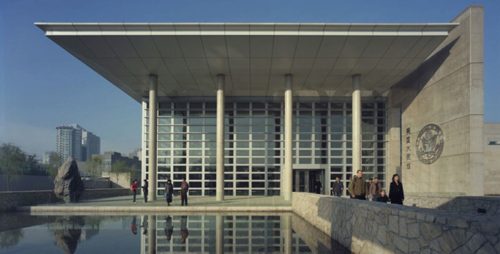Trump to China: Reduce trade deficit by $100 billion, or I’ll slap you with $60 billion in tariffs


Amid rising trade tensions between the U.S. and China, the Chinese foreign ministry is urging President Donald Trump to not see trade as a “zero-sum game” (零和游戏 línghé yóuxì). Here’s ministry spokesman Lu Kang on March 14 [Chinese version here]:
“What I want to highlight here is that economic cooperation does not necessarily mean two parties competing and undermining each other, and it should never be a zero-sum game in which one’s gains will definitely be another’s losses. We have stressed many times that China is firmly opposed to any unilateral trade protectionism. If the U.S. does take the steps and harms China’s interests, we will definitely take measures to safeguard our legitimate rights and interests.”
The problem with this is simple: Trump is obsessed with “winning” on trade. He literally sees it as zero-sum, as Reuters reports that his administration is continuing its strategy of “pressing China to cut its trade surplus with the United States by $100 billion,” without specifying how the country should achieve the herculean feat (i.e., all Trump cares about is the number going to — you guessed it — zero).
And recent reporting makes clear that he is throwing all caution — whatever amount of it he had left — to the wind and indulging his most protectionist instincts on trade with his old campaign bogeyman, China.
- Trump is “seeking to impose tariffs on up to $60 billion of Chinese imports and will target the technology and telecommunications sectors,” according to two sources cited in Reuters.
- The list of items targeted “could eventually run to 100 products,” including many non-tech items, a third source indicated.
- “The process was being led by Peter Navarro, an avowed protectionist, and by U.S. Trade Representative Robert Lighthizer, who also favors tariffs as a tool to rebalance trade,” an industry lobbyist told Reuters.
- The sum of $30 billion just wasn’t enough for Trump, Politico reported, as he shot down a proposal of that size by Lighthizer last week.
- “As soon as next week” is when officials indicated the $60 billion tariff package could be rolled out, but the “Treasury, State and Justice Departments have all insisted on a thorough review of the investment restrictions to avoid a repeat of the fallout from Trump’s original travel ban, which was knocked down by U.S. courts,” according to one official.
- “Restricting visas for Chinese citizens,” which would particularly hit “graduate students in science and technology programs,” are also under consideration, two officials told Politico. But “some administration officials have raised objections to the visa restrictions, and it’s unclear whether they’ll be included in the final package.”
- Trump is “hell-bent on going it alone” with unilateral tariffs, rather than working through the World Trade Organization or first making a deal with trading partners to jointly press Beijing, according to an outside adviser to the administration quoted in Politico.
- China would “likely challenge the tariffs at the World Trade Organization,” however, and as the New York Times details (paywall), would have the opportunity to inflict profound pain on Boeing — one of America’s top high-end manufacturing exporters — if $60 billion in tariffs demanded a direct response.
Trump today described tariffs as a “negotiating point,” in comments about his new selection for National Economic Council director, Larry Kudlow. Kudlow is set to take over from Gary Cohn, who resigned in protest of Trump’s tariffs on steel and aluminum, but Trump said that the similarly free-trade-supporting Kudlow has “come around to believing in tariffs as a negotiating point,” CNBC reports.
Here’s what I suspect he means: “China, reduce the trade deficit by $100 billion — I really don’t care how — or I’ll slap you with $60 billion in tariffs.”






